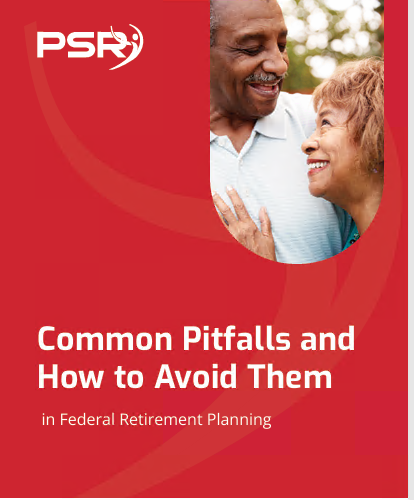It’s common knowledge that it is crucial to hold various retirement investments that enable income generation. After all, Social Security may be forced to make benefit adjustments in the future, which could mean a lower monthly payout for you.
Even if Social Security benefits aren’t reduced, those benefits will only replace roughly 40% of your pre-retirement income if you make an average salary. You will receive a lower replacement income if you earn more than average. Furthermore, while retirees can frequently get by with less than 100% of their prior income, they typically require more than 40% to live comfortably.
- Also Read: Divorce and Your Federal Pension—What Happens When You Split Assets and How It Could Affect Your TSP
- Also Read: What Happens to Your Federal Benefits After Divorce? Here’s the Lowdown
- Also Read: The Best FEHB Plans for 2025: Which One Fits Your Lifestyle and Budget the Best?
Holding dividend-paying equities is indeed a fantastic method to increase your Social Security income. But you should venture outside of that.
Limit your reliance on dividend stocks
Keeping dividend stocks in your portfolio throughout retirement is unquestionably a good strategy. However, they should be one of several items you invest in at that time.
One factor is the general volatility of stocks. Additionally, as a senior, it’s wise to preserve some of your money in securities whose value is less likely to fluctuate dramatically, like bonds. That is but one argument against investing excessively in dividend stocks.
Another factor is that dividend payments are not assured to be made to you. When you invest in bonds, the organizations that issue your bonds are legally required to pay you interest at predetermined periods. This does not imply that individuals entitled to the interest payments can or will default on them. But when you make that investment, they are at least mentioned in terms of your bonds.
On the other hand, businesses that distribute dividends to stockholders are not compelled to do so. Furthermore, they are in no way required to maintain a specific dividend. As a result, you can fill your portfolio with dividend-producing stocks only to discover that, over time, some or all of those companies reduce or stop paying dividends altogether.
As such, dividend stocks ought to be one of the numerous income sources you set up for yourself during retirement. Your goal should be to diversify your holdings so you can earn income from various investments, including bonds, index funds, and possibly real estate, if you have the appetite for it.
Diversification is always a good idea.
When you’re younger, it’s crucial to keep a broad financial portfolio; as you age, it’s essential to continue. This entails not becoming unduly dependent on dividend stocks but instead using them as one of several resources to augment your Social Security payments and guarantee you have enough money for a pleasant retirement.
You probably need a million-dollar portfolio to live off your dividends right now, but that number will only increase.
If you’re currently saving for retirement, remember that a current retiree would need about $1 million to live off the dividends. You most likely will need 22% more if you are ten years away from retirement, and 49% more if you will retire 20 years from now. And most likely twice as much if you’re 35 years away.
These increases are to cover inflation. Of course, this quick calculation ignores factors like a downsized home, an inheritance, a decline in expenditures in your later years, etc. It also ignores the possibility that your dividends won’t keep up with inflation.
Stocks usually gain value in addition to the dividends they pay over time. You should consider increasing your capital during retirement if you intend to only rely on your dividend income.
Conclusion
Living off dividends may be possible depending on your expenses, required amount of income, and assets. It’s crucial to avoid letting dividends determine your entire asset allocation plan. This can put your income stream in danger and potentially your entire portfolio. (Re)think about the significance of living off dividends in your financial strategy as you contemplate how to retire comfortably or gain financial flexibility. It might not be as crucial as you believe.
Contact Information:
Email: [email protected]
Phone: 6023128944
Bio:
Mike was born in Chicago, Illinois on August 13, 1946. He was brought up in the
suburb of Skokie on Chicago’s northwest side and graduated from Niles Township (
East ) high school In 1964. Two years later he joined the US Air Force in November of
1966. After 2 years of Intense training he volunteered for Viet Nam and was sent to
Bien Hoa Airbase, which was 25 miles from Saigon, the nation’s capital. He
volunteered for a number of especially dangerous missions on his days off, such as
flying as a door gunner on a US Army helicopter and as a technical assistant on a
psychological operation on an Air Force O-1E observation aircraft. Capping off his
impressive accomplishments was winning the coveted Base Airman of the Month for
March 1969, a feat which was featured in the Pacific Stars And Stripes newspaper
read by every service man stationed in the Pacific theater of operations. After his
Viet Nam tour of duty he was stationed at Luke Air Force Base in Glendale, Arizona
where he met and married his wife, Lequita.
He graduated from Arizona State University in May, 1973, and after a 30-plus year
career as a financial advisor he joined a number of service organizations including
Easter Seals and Valley Forward, sponsor of EarthFest. He was also involved with the
National Federation of Independent Business and became the longest-serving
chairman of the Leadership Committee ever. He spoke before the ( AZ ) House Ways
and Means & Senate Finance committees. He then joined Disabled American
Veterans ( DAV ) in September of 2015. He rose quickly through the ranks and
became Chapter 8 Commander in May of 2019 where he served with Distinction for 3
years before being “ termed out”. The next year, as Vice Commander, he won the
title of National Champion Recruiter!











